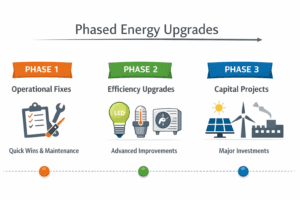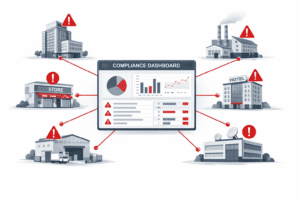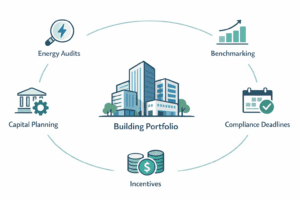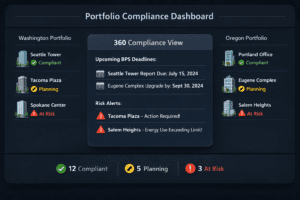Navigating the construction industry is akin to captaining a ship through uncharted waters. Success is contingent upon the careful selection of a crew whose skills, experience, and diligence can weather any storm. This is where the strategic process of Subcontractor Prequalification enters the narrative, a crucial step that allows project managers to set sail with confidence, ensuring their journey from blueprint to final build is as smooth and uninterrupted as possible.
I. Introduction
Within the bustling construction industry, the concept of ‘time is money’ is never more pertinent. A lapse in any corner of the project can lead to spiraling costs and detrimental delays. This is where the practice of subcontractor prequalification becomes not just beneficial, but essential. By methodically vetting potential subcontractors, project leaders can lay a strong foundation for their ventures, underpinning them with trust, reliability, and excellence, and reducing the likelihood of unwelcome surprises that can derail schedules and inflate budgets.
II. Understanding Subcontractor Prequalification
Subcontractor prequalification is the process of evaluating the qualifications and performance history of subcontractors before they are officially hired for a project. Picture it as a filter that separates the wheat from the chaff, ensuring that only the most reliable, competent, and financially stable firms join your construction team.
The prequalification process typically includes a thorough examination of the subcontractor’s financial records, past project performance, adherence to safety protocols, quality of work, and their current workforce. It is a detailed probe designed to establish a subcontractor’s ability to fulfill project obligations effectively and efficiently.
III. Importance of Subcontractor Prequalification

Venturing into a construction project without prequalifying your subcontractors is a gamble with high stakes. The process is key to mitigating risk, upholding project quality, and ensuring legal compliance.
Reducing Risks and Delays
Without prequalification, project managers risk aligning with subcontractors who may be financially unstable or unreliable. This can lead to severe delays if a subcontractor fails to meet their obligations or, worse, suddenly goes out of business. Prequalification acts as a safeguard, offering a forewarning about which subcontractors have a history of financial issues or project mismanagement, allowing for a more informed decision-making process that can prevent project disruptions.
Ensuring Quality Work
Quality in construction is non-negotiable. A building or structure’s safety, durability, and functionality depend on the quality of workmanship at every stage of its construction. Prequalification helps project managers identify the subcontractors who have the necessary certifications, skills, training, and resources to execute high-quality work, ensuring that the end product not only meets but exceeds industry standards.
Compliance with Legal Obligations
Every construction project is bound by a network of laws and regulations. Failing to comply with these can lead to hefty fines, legal disputes, and significant project setbacks. Subcontractor prequalification ensures that you partner with firms that are fully licensed, bonded, and insured, and that they adhere to all relevant labor laws, safety regulations, and industry standards, shielding your project from legal woes.
IV. Detailed Advantages
Risk Mitigation
Diving deeper into risk mitigation reveals that prequalification is more than a cautionary step; it is a strategic approach to financial and project risk management. By scrutinizing a subcontractor’s credit history, liquidity, and past performance, project managers can predict potential financial pitfalls and preemptively counteract them. This includes identifying signs of overextension in other projects, poor cash flow management, or a history of litigation that might hint at underlying stability issues.
Quality Assurance
The cornerstone of successful construction lies in exceptional quality control. Prequalification enables project managers to set quantifiable standards for workmanship, ensuring that only subcontractors with a track record of delivering high-caliber work are considered. This process often entails examining the subcontractor’s portfolio for past projects of similar scope and complexity, evaluating the training and expertise of their workforce, and verifying the quality of materials and equipment they plan to use.
Legal Compliance
The legal landscape of construction is complex, with varying regulations depending on the location and type of project. Prequalification arms project managers with detailed knowledge of a subcontractor’s legal history, including any previous violations, outstanding liabilities, or history of disputes. It also assesses whether subcontractors understand and comply with the industry’s latest health and safety directives, labor laws, and environmental regulations, thereby reducing the risk of non-compliance and associated costs.
V. The Subcontractor Prequalification Process

The process of prequalifying subcontractors is systematic and methodical. It typically involves the following steps:
- Submission of Prequalification Documents: Subcontractors provide essential documents, including financial statements, bank references, insurance certificates, bonding capacity, and safety records.
- Review of Financial Stability: An analysis of the subcontractor’s financial health is conducted, focusing on liquidity, credit history, and long-term solvency to ensure they can sustain operations throughout the project duration.
- Evaluation of Past Performance: References are checked, and previous projects are scrutinized to assess the subcontractor’s track record for meeting deadlines, staying within budget, and adhering to quality standards.
- Safety Record Analysis: A review of the subcontractor’s safety record, including incident rates and OSHA violations, provides insight into their commitment to workplace safety.
- Interviews and Meetings: Face-to-face discussions help gauge the subcontractor’s understanding of project requirements, their communication skills, and their ability to collaborate effectively.
Best practices in the prequalification process include maintaining consistent and up-to-date criteria, ensuring a level playing field for all potential subcontractors, and transparency throughout the evaluation process. It is also essential to revisit and update prequalification requirements regularly to reflect changes in industry standards and regulations.
VI. How to Choose Subcontractors Post-Prequalification
Once a pool of prequalified subcontractors is established, making the final selection involves more than just comparing bids. It requires a careful analysis of:
– Expertise and Specialization: Assess whether the subcontractors have specific experience relevant to the project’s unique challenges and requirements.
– Resource Availability: Confirm that they have the necessary workforce, equipment, and material resources available when needed.
– Cultural Fit: Evaluate the subcontractor’s corporate culture and values to ensure alignment with the overarching project team and goals.
Tips for choosing the right subcontractor include looking beyond cost to value, considering their capacity for innovation and problem-solving, and ensuring they have robust project management processes in place.
VII. Conclusion
In conclusion, Subcontractor Prequalification is an indispensable step in the construction process, serving as the bedrock for successful project execution. It mitigates risks, assures quality, and ensures compliance, thereby setting the stage for a well-executed project from start to finish.
With a detailed prequalification strategy, construction managers can confidently navigate the complexities of their projects, knowing that their subcontractors are the most reliable, skilled, and compliant partners for the job. Therefore, before breaking ground on your next endeavor, prioritize the critical process of prequalification. It’s a decision that has far-reaching implications on the safety, quality, and legacy of your construction project. Embrace prequalification as your first step toward building excellence, and watch as your project rises, steadfast and secure, upon the solid foundation of a well-qualified team.
VertPro.com is the go-to hub for contractors dedicated to elevating energy performance upgrades for their clients. Our expansive suite of offerings includes expert Commercial Energy Audits, adept Benchmark Compliance consultation, and expansive Construction Marketplace. At VertPro®, we pride ourselves on delivering cutting-edge SaaS technology solutions that simplify the journey through Energy Benchmarking, and Energy Audits/RCx Plus, all while maintaining full compliance with a myriad of more than 60 Energy Benchmarking and Energy Efficiency Regulations nationwide.
At VertPro.com, we don’t just provide the insights and tools for energy management; we also bridge connections between qualified contractors and our client base, eager to upgrade their buildings. This creates a Marketplace where you can expand your project portfolio, ensuring that you’ll have more opportunities to apply your skills and grow your business.















